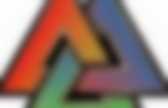

Dwarf (Germanic mythology) In Germanic mythology, a dwarf is a being that dwells in mountains and in the earth, and is variously associated with wisdom, smithing, mining, and crafting. Dwarfs are often also described as short and ugly, although some scholars have questioned whether this is a later development stemming from comical portrayals of the beings.[1] The modern English noun dwarf descends from the Old English dwarȝ. It has a variety of cognates in other Germanic languages, including Old Norse dvergr and Old High German twerg. According to Vladimir Orel, the English noun and its cognates ultimately descend from Proto-Germanic *đwerȝaz.[2] Beyond the Proto-Germanic reconstruction, the etymology of the word dwarf is highly contested. By way of historical linguistics and comparative mythology, scholars have proposed theories about the origins of the being, including that dwarfs may have originated as nature spirits, as beings associated with death, or as a mixture of concepts.
Simonside Dwarfs. Jötunn. The jötnar (anglicized jotunn or jotun, plural jötnar; /ˈjoʊtən/, /ˈjoʊtʊn/, or /ˈjɔːtʊn/; Icelandic: [ˈjœːtʏn]; from Old Norse jǫtunn /ˈjɔtunː/; often glossed as giant or ettin) can be seen throughout Norse mythology. The Jötnar are a mythological race that live in Jötunheimr, one of the nine worlds of Norse cosmology. They were banished there by the Æsir who refuse them entry to their world, Asgard. The Jötnar frequently interact with the Æsir, as well as the Vanir. They are usually in opposition to, or in competition with, them but also interact with them in a non-hostile manner. Some Jötnar even intermarry with the Æsir and Vanir. This very complex relationship between these two comparable races develops most notably in the Prose Edda and the Poetic Edda. Etymology[edit] Norse jötnar[edit] Origins[edit] The first living being formed in the primeval chaos known as Ginnungagap was a giant of monumental size, called Ymir.
Character of the jötnar[edit] Relationship with Nature[edit] Norns. Norse mythology, Sjódreygil and the NornsFaroese stamps 2006 The Norns spin the threads of fate at the foot of Yggdrasil, the tree of the world. Beneath them is the well Urðarbrunnr with the two swans that have engendered all the swans in the world. The Norns (Old Norse: norn, plural: nornir) in Norse mythology[1] are female beings who rule the destiny of gods and men, possibly a kind of dísir (see below), and comparable to the Moirai (also called "The Fates") in Greek mythology. Beside these three norns, there are many other norns who arrive when a person is born in order to determine his or her future.[2] There were both malevolent and benevolent norns, and the former caused all the malevolent and tragic events in the world while the latter were kind and protective goddesses.[2] Recent research has discussed the relation between the myths associated with norns and valkyries and traveling Völvas (seiðr-workers).
Etymology[edit] The name Urðr ( Old EnglishWyrd, Weird) means "fate".